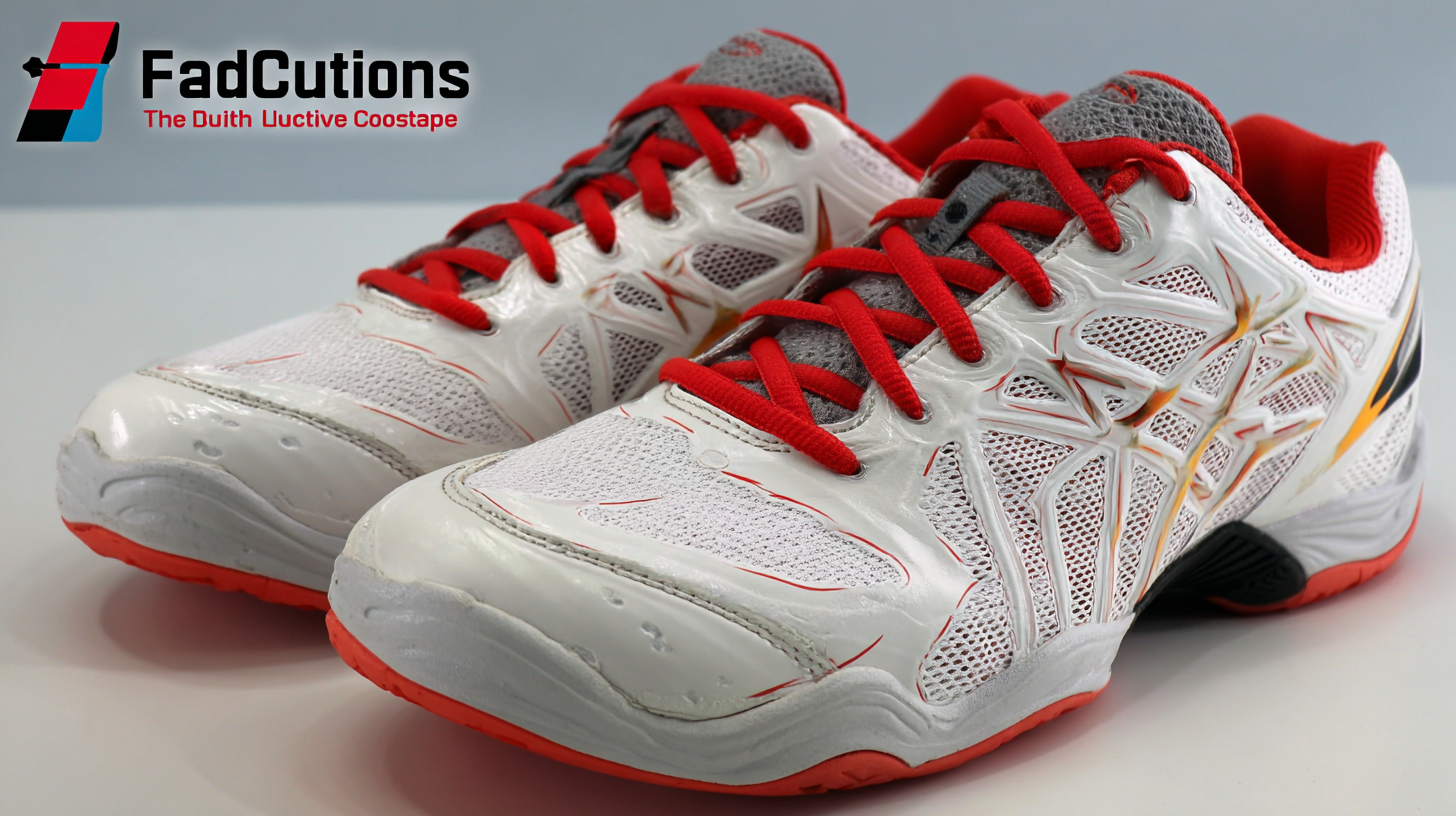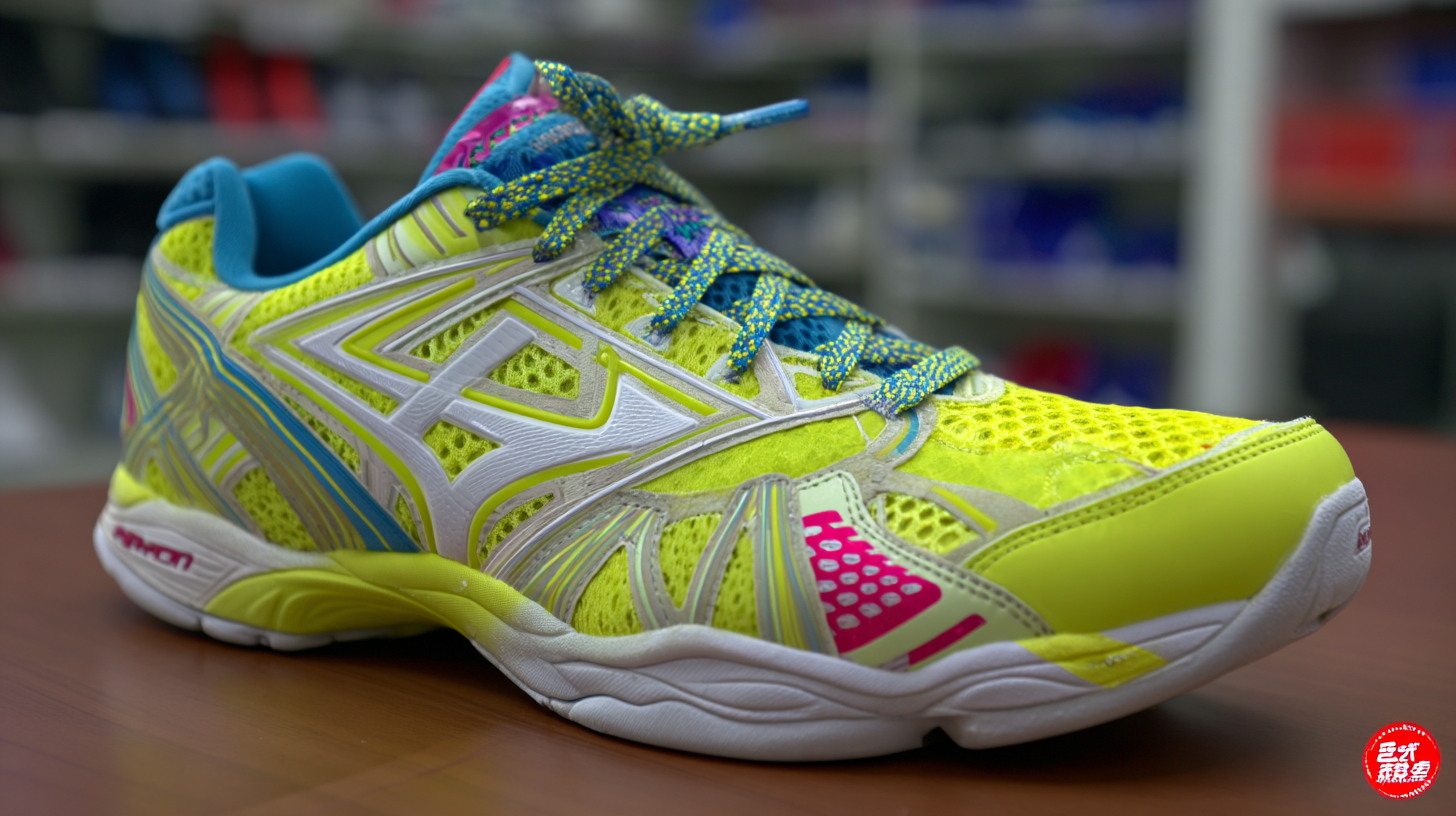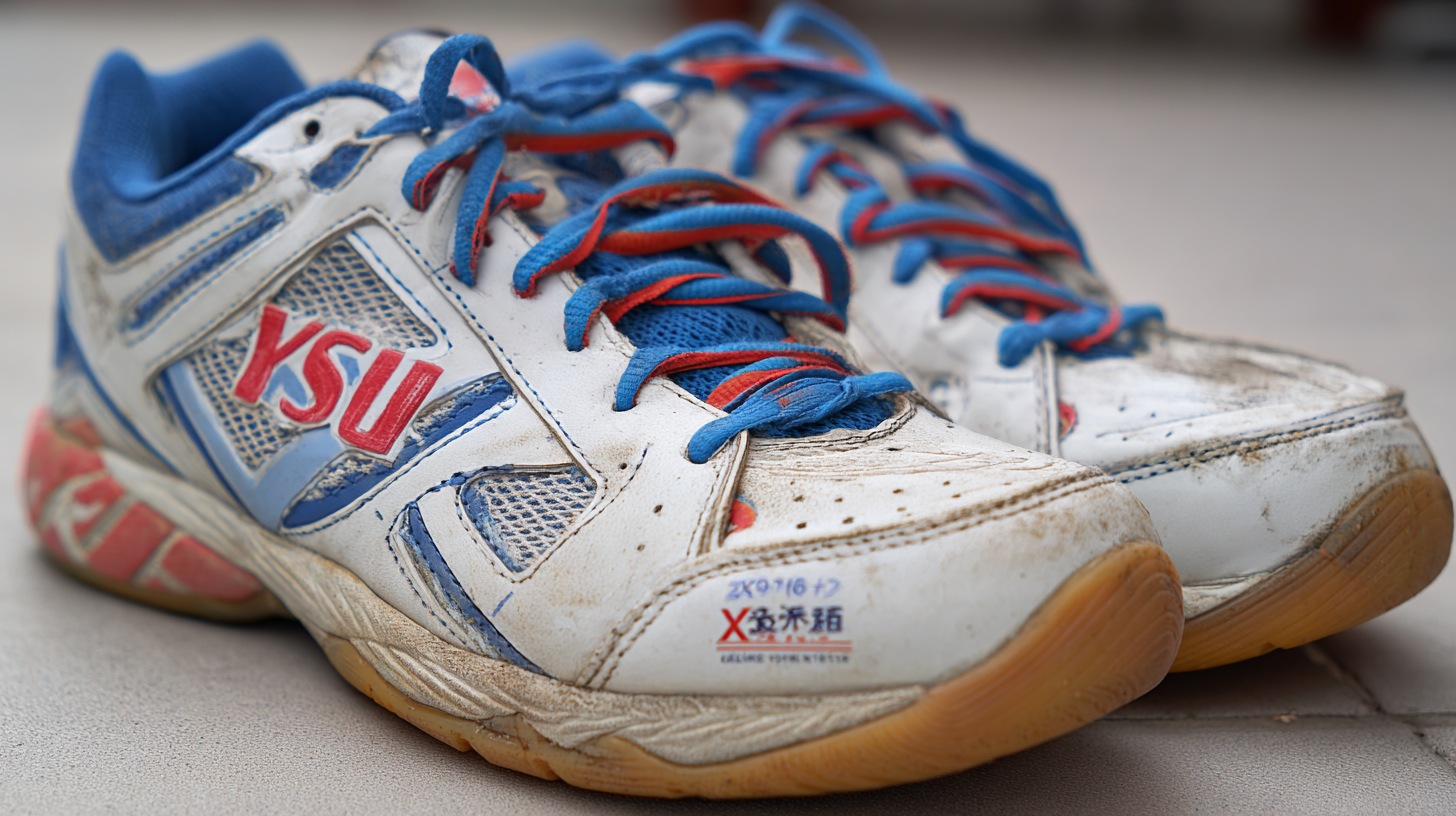Leave Your Message
As the competitive sports landscape continues to evolve, the significance of quality footwear, particularly "Used Badminton Shoes," becomes increasingly evident. Research indicates that properly fitted and supportive shoes can enhance athletic performance and reduce injury rates by up to 30%. In badminton, where agility, speed, and lateral movements are critical, selecting the right shoes can be a game-changer for players. Furthermore, the global sports footwear market is projected to reach $200 billion by 2024, with a growing segment focused on sustainable and cost-effective options such as used and refurbished athletic gear. This trend highlights a burgeoning awareness of both performance and environmental impact, making it essential for athletes to consider not only the innovation in shoe technology but also the potential advantages of investing in second-hand footwear.

In this blog, we will delve into the top strategies for selecting and utilizing used badminton shoes in competitive sports, ensuring players remain at the forefront of innovation without sacrificing performance or sustainability.
The world of badminton has witnessed remarkable advancements in shoe technology, significantly enhancing players' performance on the court. Key innovations such as lightweight materials and advanced cushioning systems are fundamentally changing the way athletes approach the game. Brands are focusing on developing shoes that not only provide superior grip and flexibility but also ensure breathability and comfort during intense matches. This evolution caters to the demands of modern athletes, who require equipment that can keep up with their rigorous training and competitive strategies.
One of the most intriguing trends in badminton shoe technology is the integration of smart features. With the rise of wearable technology, manufacturers are beginning to incorporate sensors that monitor performance metrics like speed, jump height, and footwork efficiency. This data-driven approach allows players to analyze their game in real-time, offering invaluable insights that can inform training regimens and tactics. As these innovations continue to evolve, players can expect badminton shoes that are not just footwear, but essential tools for optimizing their performance in competitive sports.
When selecting badminton shoes for competitive play, several key features should be prioritized to enhance performance and safety. According to a report by Sports Analytics Group, the right footwear can improve court agility by up to 20%, allowing players to pivot and move swiftly during matches. One of the primary considerations is the shoe's grip. A rubber outsole with a non-marking surface is essential, as it provides the necessary traction on indoor courts, reducing the risk of slipping during aggressive play.
Another crucial aspect is cushioning. Competitive badminton players often engage in high-impact movements, making effective shock absorption vital to prevent injuries. A recent study published in the Journal of Sports Medicine indicates that players using well-cushioned shoes experienced a 30% lower incidence of lower limb injuries. Additionally, breathability and lightweight materials are essential features that allow for greater comfort and performance during extended play. With the latest innovations in materials science, brands are now incorporating breathable mesh uppers that keep feet dry while minimizing overall shoe weight, thus enhancing player agility on the court.
| Feature | Description | Importance | Examples |
|---|---|---|---|
| Weight | Lightweight materials enhance speed and agility. | High | Less than 300g per shoe |
| Cushioning | Provides support and absorbs shock during play. | Very High | EVA foam or gel cushioning |
| Traction | Sole design should offer superior grip on the court. | High | Herringbone pattern sole |
| Breathability | Material allows air flow to keep feet dry. | Medium | Mesh uppers |
| Support | Adequate ankle and arch support to prevent injuries. | High | Mid-cut designs |
| Durability | High-quality materials resist wear during intense play. | High | Rubber soles |
As digital technology continues to revolutionize the sports industry, the design of badminton footwear is undergoing a significant transformation. The advent of advanced materials and innovative manufacturing techniques allows for the development of shoes that not only enhance performance but also cater to the biomechanics of players. This shift reflects a growing understanding of how specific shoe features, such as midsole construction, can influence athletes' movements and reduce the risk of injuries.
Recent studies have highlighted the crucial role of shoe construction in running, emphasizing that improvements in midsole technology can lead to better performance and lower injury rates. This insight is equally applicable to badminton, where agility and quick lateral movements are essential. By integrating digital technology into the design process, manufacturers can utilize detailed biomechanical data to create shoes that offer superior support and cushioning, aligning with the specific athletic demands of badminton players. As the sport evolves, players can expect footwear that not only enhances their game but also prioritizes their health and longevity on the court.
In the realm of competitive sports, the evolution of badminton shoes has reached a new pinnacle, driven by leading brands that are revolutionizing performance. These innovations are not merely cosmetic but focus on enhancing players' agility, comfort, and grip on the court. The integration of advanced materials and technologies plays a crucial role in creating lightweight and durable options that allow athletes to move swiftly without sacrificing support.
Today’s market is embracing affordability without compromising on quality, particularly within the landscape of emerging Chinese brands. These brands are making significant strides by offering high-performance badminton shoes that cater to a diverse range of players. The newest designs incorporate features aimed at maximizing explosive movement, stability during play, and breathability, providing athletes the competitive edge they need. As a result, players from all levels can access gear that not only meets their performance demands but also aligns with budget considerations, shaping the future of badminton sportswear.

As the world of competitive sports continues to evolve, the future of badminton shoes is increasingly shaped by two critical trends: sustainability and smart features. According to a recent report from Allied Market Research, the global eco-friendly footwear market is expected to reach $8.4 billion by 2027, growing at a CAGR of 6.3% from 2020. This emphasizes the shift toward sustainable materials, as brands explore alternatives to traditional rubber and synthetic components, focusing on recyclable and biodegradable materials that lower environmental impact. Incorporating these innovations not only attracts environmentally conscious consumers but also enhances brand loyalty as players seek products that align with their values.

In addition to sustainability, the integration of smart technology into badminton shoes is becoming paramount. A study published by Grand View Research indicates that the global smart sports equipment market could exceed $1.9 billion by 2027, with a significant portion attributed to footwear. Features like performance tracking, real-time coaching feedback, and injury prevention mechanisms are making their way into footwear designs. These advancements empower athletes to optimize their training and improve their game, while also providing coaches with invaluable data insights. As we look to the future, it’s clear that the next generation of badminton shoes will be at the intersection of performance, technology, and sustainability, setting new benchmarks for athletes around the world.
